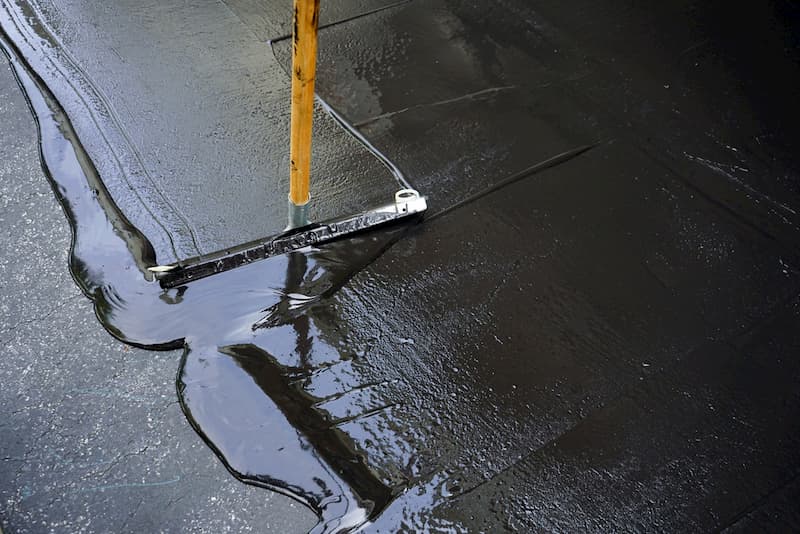Cold Mix Asphalt Vs. Hot Mix Asphalt: Which Is Right for You?

Structure Distinctions
Cold mix asphalt is generated by emulsifying the asphalt binder with water and an emulsifying representative before mixing it with aggregate. The warm mix asphalt production procedure includes heating up the aggregate and asphalt binder separately prior to incorporating them at the asphalt plant.
Additionally, cool mix asphalt tends to be less thick and more flexible than hot mix asphalt. This versatility makes it far better matched for areas with higher degrees of activity, such as driveways or roadways with heavy website traffic. In contrast, warm mix asphalt is understood for its high sturdiness and resistance to rutting and breaking, making it a preferred choice for freeways and high-traffic roadways where durability is crucial.
Installment Refine Variances
The procedure of installing cool mix and hot mix asphalt displays significant variations in their treatments and requirements. In contrast, warm mix asphalt necessitates an extra fancy installment procedure. Due to the heating demands, hot mix asphalt installations are typically brought out by specialists with customized tools, ensuring a much more long-term and structurally sound result.
Toughness and Long Life Aspects
When thinking about asphalt options, sturdiness and longevity are critical variables to review for lasting pavement efficiency. Hot mix asphalt (HMA) is understood for its remarkable sturdiness and long life.
In terms of long life, HMA generally outshines CMA due to its remarkable stamina and resistance properties. HMA pavements have a longer life span, requiring much less frequent repair work and upkeep, which can translate to set you back financial savings over time. Furthermore, HMA sidewalks are much more quickly customizable to satisfy details task demands, additionally improving their resilience.
Cost Considerations
Taking into consideration the economic effects is an important facet when examining the option between like it warm mix asphalt (HMA) and cold mix asphalt (CMA) for pavement jobs. While the first expense of warm mix asphalt is generally higher than that of chilly mix asphalt, HMA commonly offers a more cost-efficient option in the long run due to its remarkable longevity and longevity.
In enhancement to product expenses, it's necessary to consider the costs related to installation and maintenance when comparing HMA and CMA. HMA typically requires specific devices and skilled labor for appropriate setup, which can impact general project prices. On the other hand, CMA is less complicated to deal with and can frequently be applied utilizing easier strategies, possibly lowering installment expenditures. Ultimately, the choice in between HMA and CMA should consider not just the preliminary expense however additionally the lasting monetary implications to establish the most cost-efficient alternative for the specific pavement job.
Environmental Influence Contrast
Comparison of the ecological effects in between hot mix asphalt (HMA) and cool mix asphalt (CMA) exposes distinctive differences in sustainability methods. HMA manufacturing reference needs heats, causing increased power usage and greenhouse gas discharges. The procedure additionally launches unstable organic substances (VOCs) and harmful air contaminants (HAPs) right into the ambience. In contrast, CMA is generated and applied at reduced temperatures, lowering power use and discharges significantly. The reduced production temperature levels of CMA lead to reduced gas usage and reduced levels of CO2 emissions, making it a more eco-friendly option.
Furthermore, the use of CMA commonly involves reusing existing asphalt sidewalk, advertising resource conservation and decreasing the amount of waste sent out to landfills. By opting for CMA over HMA, road building projects can add favorably to ecological preservation efforts.
Final Thought
Finally, the choice in between chilly mix asphalt (CMA) and hot mix asphalt (HMA) depends on numerous aspects such as structure, setup process, sturdiness, longevity, cost, and environmental effect. asphalt repair. While CMA offers a fast and affordable solution for minor fixings, HMA guarantees superior toughness and durability for rush hour areas. Consider these factors meticulously to figure out which type of asphalt is the best option for your paving requires
Considering the economic implications is an important aspect when evaluating the selection between hot mix asphalt (HMA) and cool mix asphalt (CMA) for pavement jobs. While the preliminary Read Full Article expense of hot mix asphalt is usually greater than that of cool mix asphalt, HMA frequently gives a much more affordable solution in the long run due to its exceptional resilience and longevity. asphalt repair.Comparison of the environmental impacts between hot mix asphalt (HMA) and cool mix asphalt (CMA) exposes unique distinctions in sustainability methods.In verdict, the option between chilly mix asphalt (CMA) and warm mix asphalt (HMA) depends on numerous variables such as composition, setup procedure, resilience, long life, cost, and environmental impact